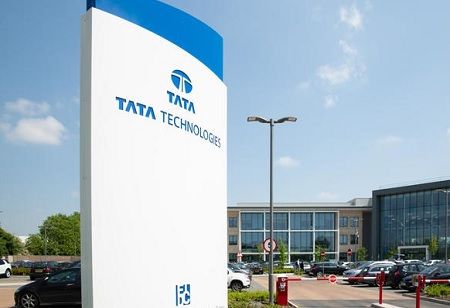
Tata Technologies Launches Innovative Studio with Llama 2, Stable Diffusion 3

 Tata Technologies has achieved a breakthrough in generative AI technology. In a recent interview with AIM, the company revealed that it has developed a cutting-edge solution utilizing Llama 2 and Stable Diffusion 3. This innovation is poised to transform the automotive design process, facilitating swift prototyping and visualization of design alterations, consequently slashing the time required for design iterations.
Tata Technologies has achieved a breakthrough in generative AI technology. In a recent interview with AIM, the company revealed that it has developed a cutting-edge solution utilizing Llama 2 and Stable Diffusion 3. This innovation is poised to transform the automotive design process, facilitating swift prototyping and visualization of design alterations, consequently slashing the time required for design iterations.
“With this solution, engineers won’t need to use design software like Autodesk Maya, which can be quite expensive and cumbersome”, said Santosh Singh, executive vice president at Tata Technologies, adding that their solution is much more cost-effective and simple to use. “The team uses generative AI to develop multiple design options on the fly. It helps reduce design time, engineering time, and product development time”, he added.
Singh explained that car manufacturers can seamlessly introduce new models by tweaking existing designs, such as adjusting the front section, through the use of generative AI. All they have to do is identify the specific area of the vehicle they want to modify and provide a prompt outlining the desired changes. He also mentioned that Tata Technologies is collaborating with Azure and AWS to develop the technological infrastructure and is harnessing Meta's Llama 2.
“We don’t run a model where we have to expose customer data to the cloud. The way we have designed our model is simple. It’s on the cloud only for LLM capabilities; the rest is within the premises, and we have a connector to train the data”, he explained.
In the previous year, Autodesk unveiled its intention to integrate generative AI functionalities throughout its range of products. Through the acquisition of Blank.AI’s generative AI capabilities, the company now facilitates swift conceptual design exploration within the automotive industry. This enables the instantaneous generation, exploration, and modification of 3D models via natural language and semantic controls, eliminating the necessity for advanced technical expertise.
Singh said that a major challenge Tata Technologies is facing today is not being able to integrate its generative AI solutions to existing software like Siemens, Dassault, and Autodesk, which are used for designing vehicles. “These are all closed proprietary software systems, so they don’t allow external software to penetrate inside and access the designs”, he explained.
Tata Technologies has developed a Virtual Sales Assistant designed to enhance sales professionals' productivity by 15-20%. This AI-driven tool simplifies the sales journey and enhances customer interaction. Additionally, the company is presently engaged in two projects, Factory Copilot and Warranty Analysis, utilizing generative AI technology.
On the other hand, Warranty Analysis and Repair Solutions leverage AI to optimize after-sales services, improving efficiency and customer satisfaction in warranty-related processes. “Through this solution, we are trying to reduce the analysis time and make it more accurate so that the team on the ground can get clear and correct insights on the problem”, said Singh.